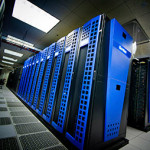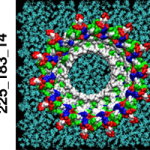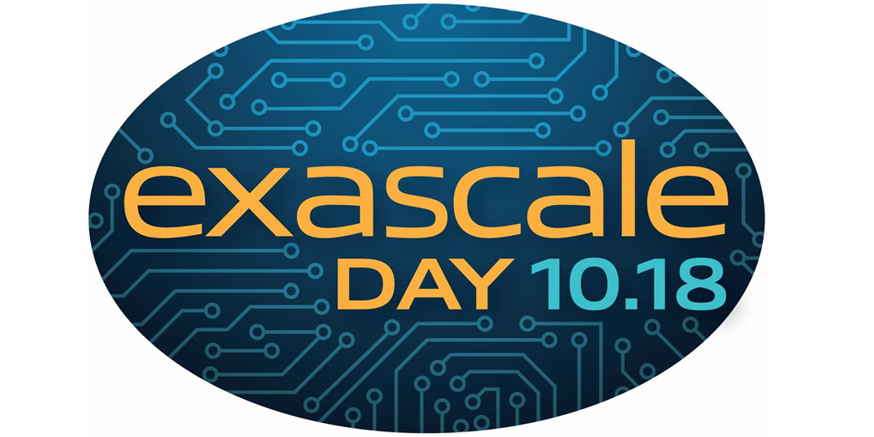The majority of SDSC’s data-intensive Gordon supercomputer will be used by Simons for ongoing research following completion of the system’s tenure as an NSF resource on March 31.”We are delighted that the Simons Foundation has given Gordon a new lease on life after five years of service as a highly sought after XSEDE resource,” said SDSC Director Michael Norman, who also served as the principal investigator for Gordon. “We welcome the Foundation as a new partner and consider this to be a solid testimony regarding Gordon’s data-intensive capabilities and its myriad contributions to advancing scientific discovery.”
New Ocean Current Simulations Reflect Climate Change
Researchers are using the Gordon supercomputer at SDSC to paint a new picture of global warming’s impact on the complex processes that drive ocean mixing in the vast eddies swirling off the California coast. “Nearly a fifth of the worldwide ocean productivity is in these zones, and no one has really looked with this level of detail at the climate change implications for these precious marine areas,” said Renault.”
Gordon Supercomputer Aids Search for New Antibiotics
Researchers using the Gordon Supercomputer at SDSC have identified a class of possible antibiotics with the potential to disable previously drug-resistant bacteria. In essence, these new agents were found to attack the bacteria along two fronts: its external lipid cellular wall and its internal factory responsible for generating cellular energy in the form of adenosine triphosphate or ATP.
Seagate SSDs Boost Analytics on Comet Supercomputer
The San Diego Supercomputer Center is adding 800GB Seagate SAS SSDs to significantly boost the data analytics capability of its Comet supercomputer. To expand its node-local storage capacity for data-intensive workloads, device pairs will be added to all 72 compute nodes in one rack of Comet, alongside the existing SSDs. This will bring the flash storage in a single node to almost 2TB, with total rack capacity at more than 138TB.
SDSC Gets One-year Extension for Gordon Supercomputer
The National Science Foundation has awarded the San Diego Supercomputer Center (SDSC) a one-year extension to continue operating its Gordon supercomputer, providing continued access to the cluster for a wide range of researchers with data-intensive projects.
Gordon Supercomputer Helps Guide New Drug Designs
Researchers at SDSC are using the flash-based Gordon supercomputer in the fight against Alzheimer’s disease. By studying peptides using Gordon, the scientists have found new ways to elucidate the creation of the toxic oligomers associated with this devastating illness.






